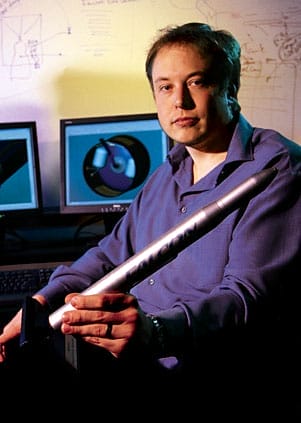 Elon Musk always wanted to change the world in positive ways. Now he’s ready for new worlds.
Elon Musk always wanted to change the world in positive ways. Now he’s ready for new worlds.
“One of the great inventions of any intelligent species is expanding beyond their planet,” he told USA Today. Thus, Space X, Musk’s company, proposes to make space travel and launching of payloads at a cut rate to current rockets.
Musk has always been interested in technical challenges, and he’s accustomed to succeeding. Fascinated by video games as a pre-teen, he created “Blast Star,” which was more or less a combination of two of the more popular games of the era, “Asteroid” and “Space Invaders.” He sold “Blast Star” for $500, he said, which is several zeroes to the right less than his next two businesses.
In his early 20s, he started Zip2, which included a full online publication system that interfaced with a newspaper’s legacy mainframe, maps, directions, and e-mail. He sold it to Compaq for $307 million. He took someof that money and helped found PayPal, a system of transferring money on the Internet securely that even the smallest online businesses could use. He then sold PayPal to eBay for more than a billion dollars.
With the $300 million he himself realized from the two Internet sales, he decided to follow his lifelong interest in space travel and founded Space X, saying that he was not competing with high-cost contractors like Boeing, since he was building the equivalent of a truck, while they were looking to be Ferraris. The thought, said Musk, was to bring more people into space and useit for human ecological growth, not just deliver military objects into the cosmos.
He is also a booster of clean power as chairman and the lead investor in two cutting-edge alternative energy companies: Tesla Motors and Solar City. Solar City’s goal, he told Wharton Alumni Magazine in 2006, is to “bring solar power to everyone.” He continued, “The U.S. market is the biggest in the world, and I think that if the U.S. uses 25 percent of the world’s energy, that’s a big market.” Tesla Motors’s products are less grand but more spectacular, beginning with an electric sports car with a 3.9 second 0-60 mph acceleraton and 135 mpg equivalent. When production rolls out in December 2007, Musk plans to own and drive the very first one.

























